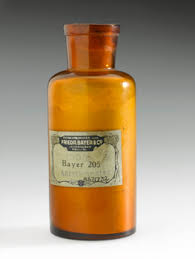
Breaking News
6.5x55 Swedish vs. 6.5 Creedmoor: The New 6.5mm Hotness
Best 7mm PRC Ammo: Hunting and Long-Distance Target Shooting
 Christmas Truce of 1914, World War I - For Sharing, For Peace
Christmas Truce of 1914, World War I - For Sharing, For Peace
Top Tech News
 EngineAI T800: Born to Disrupt! #EngineAI #robotics #newtechnology #newproduct
EngineAI T800: Born to Disrupt! #EngineAI #robotics #newtechnology #newproduct
 This Silicon Anode Breakthrough Could Mark A Turning Point For EV Batteries [Update]
This Silicon Anode Breakthrough Could Mark A Turning Point For EV Batteries [Update]
 Travel gadget promises to dry and iron your clothes – totally hands-free
Travel gadget promises to dry and iron your clothes – totally hands-free
 Perfect Aircrete, Kitchen Ingredients.
Perfect Aircrete, Kitchen Ingredients.
 Futuristic pixel-raising display lets you feel what's onscreen
Futuristic pixel-raising display lets you feel what's onscreen
 Cutting-Edge Facility Generates Pure Water and Hydrogen Fuel from Seawater for Mere Pennies
Cutting-Edge Facility Generates Pure Water and Hydrogen Fuel from Seawater for Mere Pennies
 This tiny dev board is packed with features for ambitious makers
This tiny dev board is packed with features for ambitious makers
 Scientists Discover Gel to Regrow Tooth Enamel
Scientists Discover Gel to Regrow Tooth Enamel
 Vitamin C and Dandelion Root Killing Cancer Cells -- as Former CDC Director Calls for COVID-19...
Vitamin C and Dandelion Root Killing Cancer Cells -- as Former CDC Director Calls for COVID-19...
 Galactic Brain: US firm plans space-based data centers, power grid to challenge China
Galactic Brain: US firm plans space-based data centers, power grid to challenge China
'Game Changer': Study Finds 100-year-old Drug Reverses Autism Symptoms in Kids

The study's lead researcher, Dr. Robert Naviaux of the San Diego School of Medicine is an internationally known expert in human genetics, inborn errors of metabolism, metabolomics, and mitochondrial medicine. He is the discoverer of the cause of Alpers syndrome — the oldest Mendelian form of mitochondrial disease — and the developer of the first DNA test to diagnose it. Naviaux is, by far, one of the most qualified people in the world to conduct this study.
During his research, Naviaux noted the transformative results of the drug suramin which was first developed in 1916 and used as an anti-parasitic drug for treating African sleeping sickness and river blindness. After giving a single dose of suramin to boys with autism, between the ages of five and 14, Naviaux recorded something incredible — their symptoms were significantly alleviated.
"After the single dose, it was almost like a roadblock had been released," he said. "If the future studies show that there's continued health benefits, this could be a game-changer for families with autism."

 The State's Last Stand
The State's Last Stand


